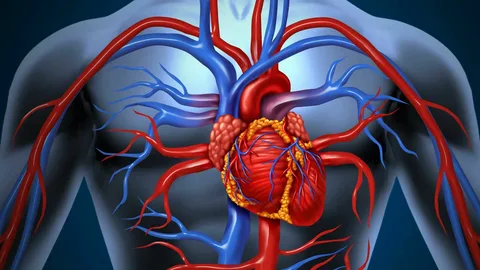A person should learn about the vascular disease if they have a family member who has the illness or if they want to prevent it. If you have vascular disease or increased blood pressure, your doctor is aware of this. Cardio vascular surgeons offer endovascular therapy to patients with vascular illnesses that require numerous invasive procedures.
What is Vascular Disease?
Vascular disease is a condition in which the blood vessels in your body become damaged. This can lead to problems with your heart, blood pressure, and blood flow. Vascular disease can also cause damage to other parts of your body, such as your kidneys and liver. It is a term used to describe a wide range of conditions that affect the blood vessels. These conditions can lead to a number of health problems, including heart disease, stroke, and blood clots. It’s important to know what vascular disease is so that you can get help early if you start experiencing symptoms.
It is a term used to describe a wide variety of conditions that affect the blood vessels. Some of the most common types of vascular disease are atherosclerosis, thrombosis, and stroke. These diseases can damage the walls of your arteries, causing them to become narrowed or blocked. This can lead to heart attack, stroke, and other serious health problems. Vascular disease is a leading cause of death in the United States, and it is important to be aware of the risks so that you can take steps to prevent it.
How can Vascular Problems Be Avoided?
Many vascular disorders can be prevented by maintaining a healthy lifestyle. This includes eating a balanced diet, getting enough exercise, and avoiding tobacco use. Some other ways to prevent vascular disorders include getting regular checkups and screenings, taking medications as prescribed, and following the advice of your doctor. It is a group of conditions that can damage the blood vessels in the body. They can be caused by genetic factors, lifestyle choices, or environmental factors. Some of the most common vascular disorders include stroke, heart attack, and peripheral artery disease. If you’re at risk for a vascular disorder, it’s important to get screened for it.
There are many ways to prevent vascular disorders. One way is to keep your blood pressure under control. You can do this by eating a healthy diet, exercising regularly, and getting regular check-ups. Another way is to avoid smoking. Smoking can increase your risk of developing vascular diseases by increasing your blood pressure and cholesterol levels. Finally, you can reduce your risk of developing vascular disorders by getting regular check-ups and screenings for these diseases.
When should you seek treatment for vascular disease?
It is imperative that you visit your physician if you are having heart problems, dizziness, or difficulty breathing. These signs may be the initial indication of vascular conditions like diabetes or hardening of the arteries. You should begin taking medicine to lower your risk if you have vascular disease risk factors, such as smoking or a family history of the disease. Today, thousands of people are affected by vascular disease. It could occur at any time after the age of 45 when there is a substantial increase in blood pressure on the carotid artery. A vascular disorder is rare when the capillaries in your body don’t function properly, denying oxygen to your tissues for a longer length of time and frequently leading to cardiac problems. To avoid your condition becoming worse and deteriorating, it is crucial that you receive immediate treatment if you have such symptoms. If you routinely experience chronic leg pain or poor circulation, consult with the best vascular doctor.

